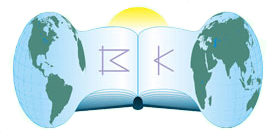On March 10, the Discussion Club of “Caravan of Knowledge” hosted a seminar on the subject of “Days bygone. The strength and the powerlessness of historical memory”. Professor Bakhodir Ergashev presented his report for the discussion. The participants focused mainly on the latest (Soviet) history. A very heated discussion followed revealing the complexity and sensitivity of an unexplored phenomenon of historical memory.
Some key points are presented below:
– In the late 1980s the USSR witnessed a complex situation where the elements and powers of an old and an emerging systems collided and reflected in interreligious, interethnic and other conflicts;
– history implies the following of the national interests;
– however, who would determine these national interests?;
– the causal relationships of the recent past’s many dramatic events has not yet been fully revealed;
– there is a problem of an eclectic narrative;
– many texts (and not only historical ones) resemble dissertation templates;
– there is a big issue with the closed archives;
– there is a problem of history and historians bias;
– a taboo has been imposed on the Soviet history research, the cause of which is not always clear;
– for example, we do not study such matters as whether the events in the Balkans and other regions of the world affect the public consciousness in Central Asian countries;
– a research of our region conducted by the foreign historians not only sometimes is at odds with the local scientists’ work, but also significantly exceeds it by depth and quality;
-there is a need in a considerate approach to history, political correctness, tolerance and correlation of the studies on a regional level;
– however, would not such a “noble” approach (tolerance, political correctness, correlation) narrow the objectivity of the research in favor of the appropriateness of the research;
– history is studied on three levels: state academic institutions; non-state academics; independent analysts. Their respective professional statuses have a noticeable effect on their work;
– to what extent and where historical research is actually in demand?
– for example, in schools, history of the Soviet period is not taught in practice or this subject is severely curtailed and biased in favor of independence;
– Uzbek historiography is quite various, interesting and diverse. It had been developing whilst overcoming the legacy of the Marxist-Leninist propaganda and ideological cliché;
– the historiography of Uzbekistan has obviously successfully passed the stage of the de-Sovietization – now it is necessary to overcome the stage of a complete de-Stalinization, i.e. overcoming the principle that a man is a means for achieving any goal, including a forced establishment of a unanimity.
In general, there were debates on many issues that have been discussed one after another as the event carried on. Both the report itself and discussion were full of interesting yet simultaneously contradictory statements, which testify to the same mosaic and a rather contradictory nature of the historical memory itself. But the most important thing is to ask how would historical memory pass to the new generation – namely, the generation of the independence era? Will not the memory of the days bygone, the memory of the country their parents and grandfathers used to call homeland (regardless of any political assessments today), be erased or compromised for the future generations?
